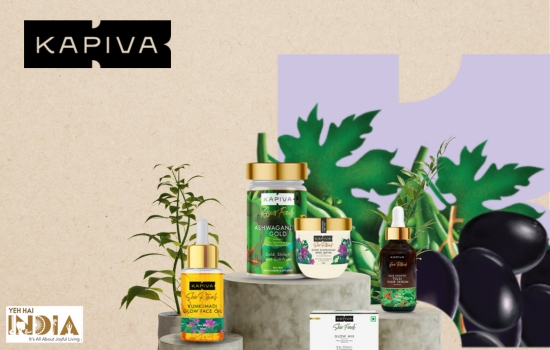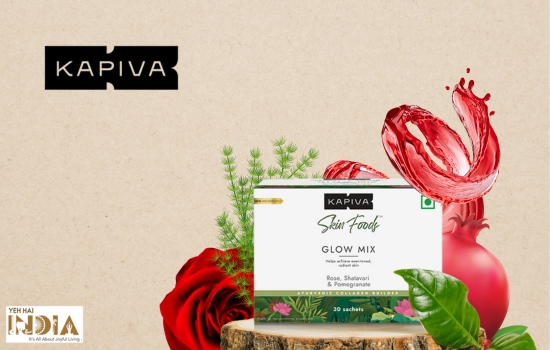Let’s embark on this insightful journey and unlock the nutritional secrets of Whey Protein vs Plant-Based Proteins!
The dispute over Whey Protein vs Plant-Based Proteins has created tremendous interest and discussion among health enthusiasts and experts alike in the fields of fitness and nutrition. As we continue on our adventure to discover the secrets of these protein powerhouses, let us dig into scientific studies and weigh the pros and cons of both options.
When it comes to protein intake, it is one of the most controversial and crucial topics in nutrition science. Low protein intake can lead to nutritional deficiencies, and at the same time, overdose can lead to multiple other health disorders.
Along with understanding how much protein your body needs, it is equally important to consider what kind of protein you are taking.
Vegan protein, often known as plant-based proteins, is becoming as trendy as Whey protein. This article will give you insights about the different kinds of protein that are available on the market.
Whey protein vs plant-based proteins – both forms of protein – have advantages and disadvantages, and the best option for you should be chosen according to your specific needs and preferences.
Whey Protein
This is a high-quality and complete protein source.
Whey protein is derived from milk during the cheese-making process. It is a byproduct that separates from the curds and contains a rich concentration of essential amino acids.
The complete amino acid profile and rapid digestion properties of whey protein have made it a go-to choice for athletes and fitness enthusiasts seeking to enhance muscle growth and recovery.
Recommended Article: Best Collagen Supplements for Overall Health
Primary Sources of Whey Protein
Whey concentrate: It has a lower protein percentage. Contains some fats and carbohydrates.
Whey isolate: It is more refined. This contains a higher amount of protein; carbohydrates and fats are minimal.
Benefits of Whey Protein
| Muscle Building and Recovery | Supports muscle building and recovery. |
| Whey’s high-quality protein and BCAAs (such as leucine, isoleucine, and valine) aid in the stimulation of muscle protein synthesis, which is necessary for muscle development and repair after severe physical exercise. | |
| Whey protein consumption after exercises can improve recovery and minimise muscular pain, allowing athletes to perform better afterwards. | |
| Rapid Absorption and Digestion | Quick absorption and digestion as compared to other protein sources. It is a great choice for post-workout nutrition since it immediately distributes amino acids to the muscles This leads to quicker recovery and maximising muscle protein synthesis. A practical alternative for people who need to satisfy their protein demands on the go. |
| Rich in Essential Amino Acids | It has all the essential amino acids, which are necessary for physiological functions. Assists your body in getting the building blocks it needs for different important processes.Improves overall health and well-being. |
Plant-Based Proteins
Plant-based proteins are also known as vegan proteins. This protein is derived from plants without involving animal products.
There are multiple sources for obtaining plant-based protein, which includes beans, grains, lentils, vegetables, nuts, and seeds.
Plant-based proteins often have a substantial amount of fibre and multiple other nutrients. They are generally cholesterol-free and lower in saturated fat as compared to whey protein.
This can be a good choice for people with lactose intolerance or allergies to dairy. As they are considered an ethical alternative and a sustainable choice in comparison to animal-derived proteins, plant-based proteins have gained popularity amongst vegans, vegetarians, and individuals seeking a more environmentally friendly diet.
Types of Plant-Based Proteins
| Soy Protein | All-inclusive protein source Produced from soybeans Comprising all necessary amino acids required by the body |
| Hemp Protein | Rich source of minerals, fibre and omega-3 fatty acids Nutrient-dense addition to a vegan diet |
| Pea Protein | A popular choice among athletes Rich in BCAAs Supports muscle building and recovery post-workout |
| Rice Protein | Hypoallergenic: Quite suitable for people with allergies and sensitivities Rice-derived protein is easily digested as light on the stomach |
Benefits of Plant-Based Proteins
| Suitable for Vegans and Vegetarians | A viable alternative to animal-based protein sources Due to the consumption of a wide range of plant-based foods, people consuming these can obtain all the essential nutrients required to lead a healthy life |
| High in Fiber | Promotes digestive health Reduces the risk of chronic diseases |
| High in Antioxidants | Reduces inflammatory processes Protects the body from oxidative stress |
| Lower Environmental Impact | Lower environmental footprint compared to animal-based protein production Sustainable and eco-friendly food choices benefit the planet |
So, Which Type of Protein is Better?
There is no easy answer, as both whey protein and plant-based protein have their advantages and disadvantages. Here’s a table to help you get a better picture when we compare whey protein and plant-based proteins on nutritional and multiple other considerations aspects.
Nutritional Comparison
| Nutrient | Whey Protein (per 100g) | Plant-Based Proteins (per 100g) |
| Protein | 78g | Varies (typically 35-40 g) |
| Essential amino acid | High, Complete protein. | Varies depending on the source, Incomplete proteins (except for soy protein) |
| Digestibility and absorption rates | Very high. Quickly digested and absorbed. | Varies depending on the plant source |
| Saturated fat and cholesterol | Moderately high | Low |
| Additional nutrients | Contains BCAAs, calcium, and other minerals. | Contains fibre, antioxidants and other vitamins and minerals |
Other Considerations
| Aspect | Whey Protein | Plant-Based Proteins |
| Effectiveness in muscle gain and performance | Effective in promoting muscle protein synthesis and growth | Effective, but may be less effective than whey protein |
| Impact on workout recovery | Fast recovery | Less effective than whey protein |
| Suitability for different fitness goals | Various fitness goals, including bodybuilding and endurance training | Better suited for endurance training |
| Health Implications and Considerations | May cause gas or bloating | Generally well-tolerated |
| Allergies | Not suitable for people with lactose intolerance or dairy allergies | Suitable for individuals with lactose intolerance or dairy allergies |
| Environmental Impact and Sustainability | High environmental impact due to animal agriculture | More sustainable Lower environmental impact |
| Risk of heart disease and cancer | Higher as compared to plant-based protein | Lower as compared to whey protein |
Choosing the Right Protein
When it comes to selecting the right protein supplement, one size does not fit all.
What are you looking for? To improve health? Gain weight? Lose weight? Build muscle? Or is it anything else?
The most crucial step is to identify your needs and goals to decide what kind of protein will be an ideal choice for you.
Do not be carried away by what is being suggested in the advertisements or by gym trainers. A medical opinion on the composition of your protein is a must. Make no concessions in this regard.
Consuming the inappropriate protein powder or taking its inaccurate dosage can hamper your health to the extent that it can harm your kidneys.
Back up your decision with an expert’s onion, and it’s better to be safe than sorry afterwards.
Final Thoughts
The choice between whey protein and plant-based proteins ultimately comes down to individual preferences, dietary restrictions, and fitness goals. Whey protein shines in terms of rapid absorption and muscle-building potential, but plant-based proteins offer a diverse range of benefits, from sustainability to heart-healthy fibre.
So, the verdict remains subjective, with the best choice hinging on your unique needs and values in the ever-evolving landscape of whey protein vs plant-based proteins.
Sources
- Effects of whey and casein protein on muscle protein synthesis in young and elderly men. (2013). Journal of the International Society of Sports Nutrition, 10(1), 43.
- The effect of whey protein supplementation on body composition and performance during caloric restriction: a randomized controlled trial. (2016). Journal of the International Society of Sports Nutrition, 13(1), 53.
- Plant-based protein sources: a review of their amino acid profiles and health benefits. (2019). Nutrients, 11(6), 1302.
- The effects of plant-based protein on cardiovascular disease risk factors: a systematic review and meta-analysis of randomized controlled trials. (2019). Journal of the American Heart Association, 8(16), e012168.
Also, Read: Cold-Pressed Oils: Are They Healthy & Worth the Hype?










